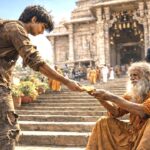Indian Parliament Witnesses Fiery Speech on National Security, Pakistan Relations, and Democratic Pride
In a recent session of the Indian Parliament, passionate and pointed debates erupted over India’s national security, government accountability, the Balakot and Pulwama attacks, and India’s relations with Pakistan and the United States. The opposition’s strong critique of the ruling party’s narrative and calls for greater transparency from Prime Minister Narendra Modi have since gone viral across social media platforms.

Opposition Questions Modi’s Narrative
Taking the floor, the opposition speaker questioned the government’s tendency to label criticism as anti-national and support as patriotism. “If we question the source of terrorism, we are called traitors. If we applaud, we’re patriots. If we ask PM Modi to respond, we’re again deemed anti-national,” the speaker said, challenging what they called a binary and intolerant narrative.
The opposition further questioned India’s approach to Pakistan, suggesting that while previous attacks like Balakot and Pulwama were met with force, the government’s response often lacked honesty and effectiveness. “The nation expected a ‘stone for a brick’ response, not a ‘brick for a brick.’ Don’t claim credit alone; our armed forces and 1.4 billion Indians made the sacrifices,” the speaker noted.
Critique of US Influence
The session also touched on the global stage, with pointed references to former US President Donald Trump. “Trump stopped the war, the world says. It’s a shame that international mediation is seen as a diplomatic victory,” the opposition remarked. They further accused the government of allowing the narrative to slip away, saying, “You may have won the war, but you lost the narrative. The country does not know if dharma triumphed over adharma, or India over Pakistan.”

Calls for Transparency and Accountability
The speech emphasized the need for transparency and clear communication from the Prime Minister, criticizing the lack of direct accountability and the silencing of questions. “This is not Pakistan, where governments behave like dictatorships. This is India, the world’s largest democracy. Here, the opposition’s voice is essential,” the speaker asserted.
Bengal Politics and Accusations Across Borders
There were references to internal politics, with the opposition challenging the ruling party’s criticism of West Bengal while questioning who was responsible for border infiltration. The speaker accused the central government of using powerful agencies and rhetoric while failing to offer real solutions.
Pride in India’s Democracy and Forces
Despite strong criticism, the opposition ended on a unifying note, expressing pride in India’s democratic values, military forces, and the achievements of Indian women in the armed forces: “We are the world’s largest democracy, proud of our Army, Navy, and Air Force. We are proud of our daughters who shine as icons of secularism and empowerment.”
The speech concluded with a resolute message: “We are not afraid. We want peace, but if injustice demands it, we will not shy from war. If India needs to send a message to terrorists or their sponsors, so be it.”
Takeaway
The session encapsulated the deep political divides in India but also showcased a commitment to both holding the government accountable and honoring the country’s institutions and values. The fiery words and pointed critiques underscore the vibrant, sometimes tumultuous, democracy of India as it faces its security and foreign policy challenges.
News
जवान लड़के-लड़कियां कपड़ों की शॉपिंग में व्यस्त थे। तीसरे फ्लोर पर मूवी थिएटर में आज एक नई फिल्म ‘वीर योद्धा’ का पहला दिन था।
यह कहानी दिल्ली के सबसे बड़े शॉपिंग मॉल, सिटी सेंटर मॉल की है। शनिवार की शाम थी और मॉल में…
A video taken outside Tobata restaurant in Delhi’s Pitampura has gone viral on social media, stirring controversy over alleged discrimination based on dress code.
Viral Video Sparks Controversy: Delhi Restaurant Accused of Denying Entry Over Indian Attire, Owner Responds A video taken outside Tobata…
Abhishek Bachchan and Aishwarya Rai’s Heartwarming Vacation Photo Goes Viral Amid Separation Rumors
Abhishek Bachchan and Aishwarya Rai’s Heartwarming Vacation Photo Goes Viral Amid Separation Rumors Amid persistent rumors about their marriage, Bollywood’s…
60s and 70s Bollywood Actress Nazima Passes Away After 38 Years Missing
60s and 70s Bollywood Actress Nazima Passes Away After 38 Years Missing Legendary actress Nazima, a popular figure in Bollywood…
एक रात का सफर: जब न्याय ने भिखारी का रूप धारण किया
एक रात का सफर: जब न्याय ने भिखारी का रूप धारण किया मध्य रात्रि थी। बारिश की ठंडी बूंदें गिर…
शहर की गलियों में गहरी खामोशी थी, मानो हर ईंट कोई दबी हुई कहानी कहने को तैयार बैठी हो। सुबह के 4 बजे, जब न दूध वाले निकलते हैं, न अखबार फेंका जाता है
रहस्य का बुजुर्ग: एक सदी पुरानी पहचान की वापसी शहर की गलियों में गहरी खामोशी थी, मानो हर ईंट कोई…
End of content
No more pages to load






